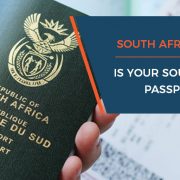South African Expats – Is Your South African passport at risk?
/in Archived, News /by xp-adminExpatriate Tax Exemption Changed
The tax law changes for 01 March 2020, limiting the tax exemption to R1m, have been promulgated. This has caused many South Africans abroad, very often for the first time, to consider the legal formalities of terminating their South African tax and exchange control residency. The financial emigration process does not impact your South African citizenship status, as this is purely a compliance formality from a South African Revenue Service and South African Reserve Bank perspective.
SARS confirmed passport status does not impact tax status
The South African Revenue Services is very aware of the differences between laws falling under the Department of Home Affairs and the Income Tax Act, even releasing a statement noting that –
“…Remember, the change is not related to citizenship and should not lead to South Africans giving up their passports, as its application rests solely on tax residency. Individuals who give up their passports may find they are still tax resident in South Africa and may still be liable for South African tax.”
Simply put, giving up your passport does not release you from your obligations to pay tax to SARS. Conversely, doing financial emigration which confirms you are not liable for tax on your world-wide income, does not impact your South African passport status.
So when can you lose citizenship?
In terms of the South African Citizenship Act No. 88 of 1995 where a South African citizen makes an application to obtain citizenship of another country, once obtained, you automatically lose your South African citizenship. The question on many expatriates lips are how this is possible, when we know you are Constitutionally guaranteed of South African citizenship by right of birth?
The solution
To give effect to your Constitutionally entrenched right, the Citizenship Act makes provision for “dual citizenship”. Section 6(2) of this Act states:
“Any person referred to in subsection (1) may, prior to his or her loss of South African citizenship in terms of this section, apply to the Minister to retain his or her South African citizenship, and the Minister may, if he or she deems it fit, order such retention.” (Our emphasis)
This application must be done before you have obtained your second citizenship and, in our view, cannot be legally declined where application is correctly done.
Where you have missed this deadline, you have technically given up your South African passport. I have consulted with one of the leading experts in the market hereon, Marisa Jacobs (marisa@xpatweb.com) and she mentioned that the loss of South African citizenship is not always equally enforced. There may be many South Africans who hold two citizenships and have never applied, neither had any issues with renewing their South African passport. She mentioned that the prudent approach, where you have obtained a second citizenship, but have missed the opportunity to proactively apply for dual citizenship, is a special process which can be followed to get this still ratified with Home Affairs.
Breathe A Sigh Of Relief
As an attorney, the only conclusion I can come to is that the writer of the previously mentioned article has confused a variety of South African legislation in coming to the conclusion that one must hand in their passports once moving abroad.
Saffas, I can confidently say that there is a legal and safe process to ensure that your foreign income stays yours, without losing any form of citizenship rights in South Africa, and thus keeping your SA passport safely in your pocket.
Author: Jonty Leon


